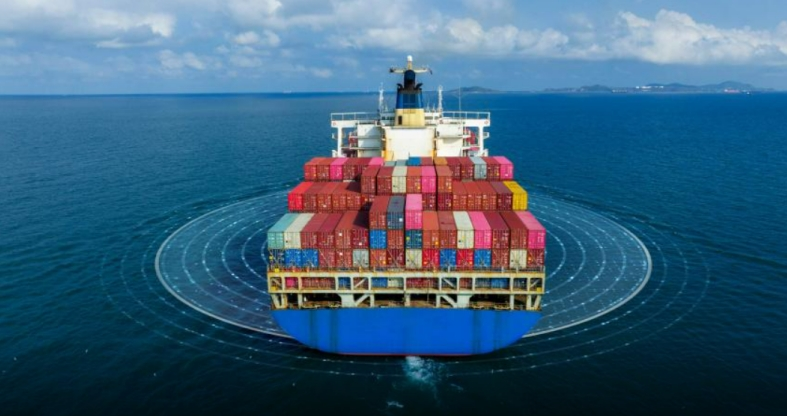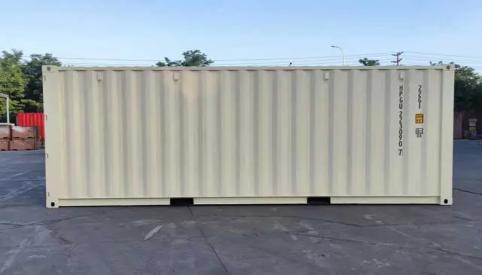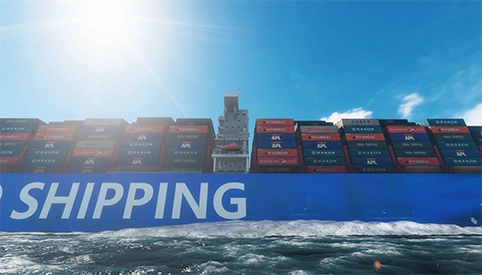2024/03/28
Around 1:30 AM Eastern Time, the “DALI,” a large container ship chartered by Maersk, spiraled out of control shortly after departing from the Port of Baltimore, striking the Francis Scott Key Bridge. This collision resulted in the catastrophic collapse of the bridge, with as many as 20 individuals and several vehicles plunging into the river below.

This incident has sent shockwaves around the globe, with CNN reporting that Baltimore is grappling with a “mass casualty event.” The bridge suffered severe damage, with half of its structure submerged in water. Kevin Cartwright, the communications director for the Baltimore Fire Department, stated, “We are dealing with a mass casualty incident involving multiple agencies, and unfortunately, as far as we know, there could be as many as 20 individuals and several vehicles in the Patapsco River.” The cause of the accident remains unclear. According to Lloyd’s List, an analysis of circulating videos suggests the vessel encountered mechanical issues before striking the bridge. The Maritime and Port Authority of Singapore (MPA Singapore) noted, “Prior to the incident, the vessel briefly lost power, rendering it unable to maintain its intended course and colliding with the Francis Scott Key Bridge.” The ship’s management company, Synergy Marine, informed authorities that, as part of the emergency procedures before the collision, the vessel had dropped anchor. The “DALI” was embarking on its return journey to Asia after completing a two-day cargo operation at the Seagirt Marine Terminal. However, less than 30 minutes after leaving the port, the vessel unexpectedly collided with the Francis Scott Key Bridge, triggering a severe accident. The “DALI” is a Singapore-flagged container ship, built in 2015, with a capacity of 9962 TEU, including 1400 reefer slots.
The vessel, chartered by Maersk and deployed on the Asia to US East Coast TP12 service, was executing voyage 349W just after departing from the Port of Baltimore at the time of the incident. Concurrently, the accident impacted the Empire service of MSC, a 2M alliance partner, as well as the ZBA service, which involves slot sharing with the Israeli shipping company Zim. This incident affected shared container slots among GOLD STAR LINE, MAERSK, MCC, MSC, SEAGO, SEALAND, and ZIM shipping companies. In early February, the vessel had called at domestic ports including Yantian, Xiamen, Ningbo, and the Yangshan port of Shanghai.
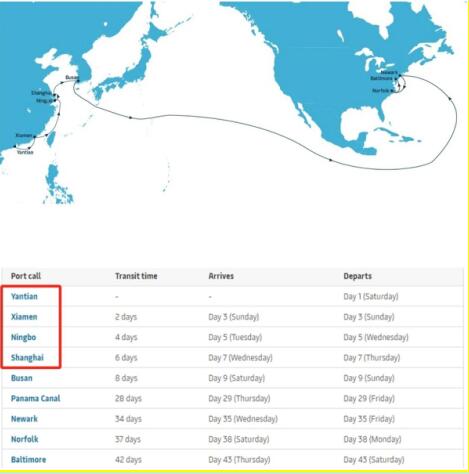
The maritime cargo insurance company WK Webster promptly issued a warning to its clients, indicating that delays or losses due to the incident were inevitable. Lars Jensen, CEO of Vespucci Maritime, also emphasized that this severe incident could not only result in significant cargo loss and damage, including the containers hanging from the bridge, but also it’s unlikely that the ship will be able to continue sailing in the near future, leading to severe delays for all cargo on board. Additionally, he mentioned that the collapse of the bridge would sever the connection between the container terminal and other freight facilities. As an important port, Baltimore handles about 21,000 TEUs per week, but now, these cargoes must be rerouted through other ports in the region. Jensen further noted that cargoes that have already entered the Port of Baltimore will either have to wait for the terminal to reopen or be transferred to another port, creating significant uncertainty.
Following the incident, Maersk quickly issued a statement expressing shock at the event and solidarity with all those affected. It confirmed that the “DALI” is managed by the Synergy Group, chartered by Maersk, and carrying customers’ cargo, but there were no Maersk employees on board. The company is closely monitoring the investigation progress by the authorities and Synergy and has promised to do its utmost to provide customers with the latest information.
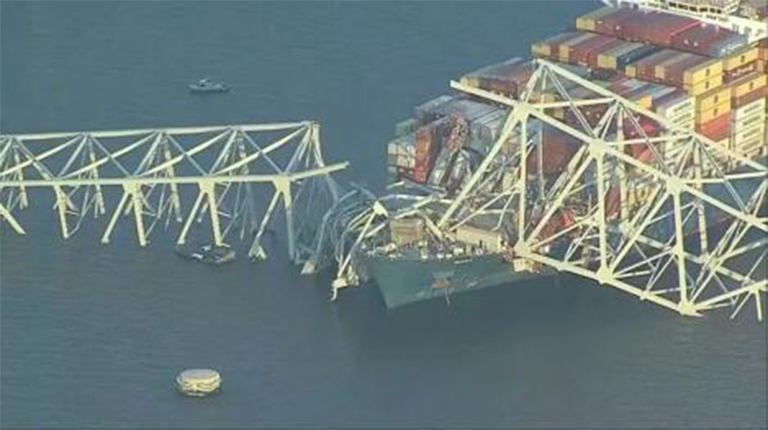
Maersk has announced that several of its shipping routes will be affected by the “DALI” bridge collision incident, including the Transatlantic TA2 and TA5, Transpacific TP12, Amex (US East Coast to South Africa route), and AGAS route (US East Coast to the Caribbean). Due to the bridge damage and debris, the company is temporarily unable to reach the Port of Baltimore, and Maersk will omit stops in Baltimore across all services until it is deemed safe to pass through the area. Containers already en route to Baltimore will be diverted to nearby ports for unloading and then transported to their final destinations by truck or rail.
Maersk is closely monitoring the safety situation in Baltimore and assessing the feasibility of resuming traffic, while reminding customers that cargoes destined for Baltimore may experience delays due to the need to unload at alternative ports.

It’s noteworthy that in April 2020, Maersk reached an agreement with the Singaporean shipowner Grace Ocean Investment to extend the charter of the “DALI” for an additional five years, although the specific daily charter rate was not disclosed. According to data from Vesselsvalue, Maersk paid $40,600 per day for this vessel during the initial five-year period. It’s also worth mentioning that this ship was involved in a collision incident in July 2016 at the Port of Antwerp. Despite favorable weather conditions, the vessel collided with the quay while departing, causing significant damage to both the ship and the dock. The responsibility for that accident was attributed to errors made by the captain and the pilot. Currently, according to the ship management company Synergy Marine Corp, there have been no reports of injuries to the crew or pilots involved in this recent incident.
